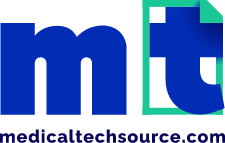
Questions and Answers About Robotic Gastrointestinal Surgery
Gastrointestinal conditions ranging from cancers and fistulas to a nagging case of acid reflux can threaten your well-being or at least erode your quality of life. If a specialist has recommended that you undergo surgery to correct such a problem, you should know that robotic gastrointestinal surgery offers many benefits over conventional surgery.
The more you understand about robotic gastrointestinal surgery, from the basic steps that go into it and the conditions it can successfully treat to what you can expect before and after it, the more calmly and easily you can pursue this advanced form of surgical treatment. Take a look at some illuminating questions and answers.
What Does Robotic Gastrointestinal Surgery Involve?
Contrary to what you might assume, robots don’t actually perform robotic gastrointestinal surgery on their own. Instead, skilled surgeons trained in the use of robotic technology perform the surgery through the use of an electronic control system. This system translates the surgeon’s hand and finger motions into mechanical commands.
The first phase of robotic gastrointestinal surgery typically resembles other kinds of endoscopic surgery, with the surgeon making small incisions that will accommodate long, thin instruments. A camera relays internal images to the surgeon, who can then manipulate the robotic surgical tools remotely.
What Conditions Can Robotic Gastrointestinal Surgery Treat?
Gastrointestinal surgery can treat a wide range of diseases and disorders throughout the digestive tract. Tumor removal counts as a prime example. Robotic surgical equipment can remove both benign and malignant tumors from the spleen, liver, intestines, stomach, pancreas, esophagus, peritoneum, and bile duct.
Many other conditions also respond well to robotic gastrointestinal surgery. Surgeons often use it to treat ulcerative colitis, Crohn’s disease, and swallowing difficulties. Robotic tools can repair hernias and fistulas, or abnormal fusions between adjacent organs that interfere with normal digestive functions.
Surgeons can use robotic gastrointestinal surgery to fix acid reflux issues that medication can’t resolve. For instance, the robotic tools can perform a Nissen fundoplication, wrapping the top of the stomach around the area where it meets the esophagus. This alteration prevents acid from moving up into the esophagus.
Why Should You Consider Robotic Gastrointestinal Surgery?
Robotic gastrointestinal surgery holds many advantages over traditional open gastrointestinal surgery. The robotic tools can perform tasks with extraordinary steadiness, detail, and precision. Meanwhile, the use of minimally invasive techniques and procedures offer some important benefits of their own.
Because robotic gastrointestinal surgery requires only a few tiny incisions instead of one large one, this form of surgery produces less bleeding, scarring, and postoperative discomfort than traditional techniques. If you choose this approach, you’ll also benefit from a lower postoperative infection risk and shorter recovery time.
What Should You Expect From Robotic Gastrointestinal Surgery?
Even minimally invasive surgery calls for some preparation on your part. Your doctor may urge you to stop using tobacco and alcohol in advance of the procedure to ensure the best possible outcome. You may also want to get extra sleep, improve your nutrition, and get your stress under control before the surgery.
Thanks to the small incisions involved, you may need to spend only a couple of nights recovering in the hospital. Many people who undergo robotic surgery experience complete recovery and return to their usual routine within just six weeks. Your surgeon will give you a checklist of post-recovery dos and don’ts.
As beneficial and minimally invasive as this kind of surgery can prove, some practitioners will inevitably make better use of it than others. If you seek a high-quality surgical team with access to state-of-the-art robotic surgery tools, search the MedicalTechSource database for providers and contact us with any questions you may have.


